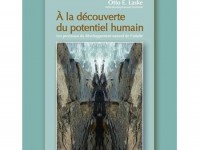Until quite recently, the notion that adults develop over their entire lifetime has been a well kept academic secret. It still is. Attempts at establishing “deliberately developmental organizations” (DDO’s; Kegan & Lahey 2016), based on 40 years of research in adult development, are quite recent. This article introduces to the Constructive Developmental Framework (CDF), a synthesis of adult-developmental research since 1975 that has been taught as well as practiced at the Interdevelopmental Institute since 2000 (). CDF is a new tool for understanding how people experience life and work, mostly without full consciousness. This qualitative understanding emerges from semi-structured 1-hour interviews which shed new light on how people construct their workplace internally, both individually and in teams. CDFs main strength in business lies in providing new tools for boosting, through dialog, two human capabilities: making meaning of experiences (called “social-emotional”) and making sense of the real world conceptually (referred to as “cognitive”), as further explained below. Viewed more broadly, CDF comprises a political dimension as well. It is a framework for coaching for society, in the sense of developing self-authoring citizens who can think independently, rather than in dependence on internalized or external others. At the present time, where algorithms... Read More...
Category: Psychological Dimension
Human Developmental Processes as Key to Creating Impactful Leadership
Copyright 2016 by Graham Boyd & Otto Laske In this article, the authors put forth a new approach to distributed leadership based on research in adult development and the pedagogical thought of Vygotsky, originator of the notion of zones of proximal development. The article attempts to re-totalize the issues neglected, or fragmented, by theories of holacracy and other models of shared leadership, in order to arrive at a deeper understanding of contemporary attempts to redesign organizational work in the direction of “organizations without managerial hierarchies”. In so doing, the authors leave behind present notions of “individual coaching”, “team coaching”, “managerial hierarchy”, and “organizational behavior”, among others, focusing squarely on contributors’ frame of reference (FoR; world view) that determines how they put their capabilities to work collaboratively and what their needs for developmental support are. The article’s essential argument is summarized in Tables 2a and 2b, one for each dimension of adult development. The authors come to the conclusion that for holacracy and similar models to succeed, much more attention must be paid to the fact that unconventional organization designs challenge contributors’ self-identity and psychological well-being. They also show that a one-sided focus on tasks and competences (Task House) is counter-productive... Read More...
Contributions to Evidence Based Developmental Coaching
This article describes a constructivist approach to coaching based on the Constructive Developmental Framework (CDF). Such coaching is evidence based, i.e., based on empirical assessments of coachees prior to actual coaching. Coaching plans are based on empirical findings about coachees' present frame of reference (the way they see the world), meant to guide them toward a more lucid understanding of themselves and their work, and toward more complex thinking. The article appeared in the International Review of Coaching Psychology, London, UK, in 2007, and is here reprinted because it helps behavioral coaches understand the limitations of their professional work. Contributions of Evidence Based Coaching 2007 Read More...
An Integrated Model of Developmental Coaching
This article, originally published in 1999 but still very timely today, introduces a way of deepening cognitive-behavioral, psycho-dynamic, and other behavioral approaches to coaching and HR resources management. It proposes an epistemological model that focuses on adults' frame of reference (world view), the true determinant of human behavior, which has been practiced and taught internationally at the Interdevelopmental Institute (IDM) since 2000. The approach focuses on adults speech behavior as a dimension revealing their developmental profile both social-emotionally (with regard to meaning making) and cognitively (with regard to sense making or *thinking*). The paradigm and the model are developmental in a twofold sense, that of “ontic” development occurring in human organisms as the mature over their lifetime (“nature”), and of “agentic” development brought about by humans (“nurture”). An introduction to the model is presented, followed by the topology of the mental space of coaching, a summary, and suggested topics for future research. Source: Consulting Psychology Journal 51.3, pp. 139-159 CPJ #1, 1999 Read More...
Human Systems in the Anthropocene
This article is a reflection on the lack of systemic and holistic "dialectical" thinking in a world in which more than ever human actions have strong and immediate repercussions in the natural, and thus also the social, environment. It is suggested that present notions of teaching, coaching, and consulting are hopelessly anachronistic since they are built on theories and algorithms of a purely formal logical nature that hinder individuals' potential for dialectical thinking to emerge. Human Systems in the Anthropocene Read More...
What is CDF: An Introduction for Beginners
This article introduces to the Constructive Developmental Framework (CDF), addressing those readers who want to learn to use the methodology. CDF is seen as a comprehensive framework for consulting and coaching, much like NLP, but on a higher level of consciousness. Its main intellectual strength lies in establishing a methodology for the deconstruction, through dialog, of less developed thinking and meaning making, for the sake of client benefit. Viewed more broadly, CDF is a framework for “coaching for society” that can lift individuals’ and teams’ developmental level. What is CDF -- An Introduction for Beginners Read More...

